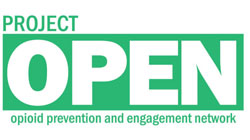The “Why” Behind RFW

- Correlation between barriers to employment and triggers for return to use (or return to unhealthy/unproductive behaviors – brain/mental health conditions)
- 94,134 overdose deaths in the US in 2020
- 3513 overdose deaths in Illinois in 2020
- By creating a workplace culture which eliminates stigma, promotes recovery, and encourages openness and honesty, you are providing another opportunity for people in recovery to be successful and independent.
- You are giving people in Recovery the chance to live a healthy, productive life — and are changing the minds of those who may have thought they couldn’t do so.
Why Are Employers Getting Involved?
- Work is where we reach people
- Talent retention
- Substance misuse costs employers $81 billion annually (National Council on Alcoholism and Drug Dependence) which is ultimately paid for by businesses in the form of impaired productivity, absenteeism, health insurance claims.
- Per Illinois Dept. of Human Service, the annual statewide economic costs associated with alcohol, other drug, and tobacco-related mortality is in excess of $3.5 billion
- Already employing people with SUD or in recovery
- 70% of individuals who use illicit drugs and alcohol are employed (National Survey on Drug Use and Health 2018)
Growing Need For Workforce
- Job Opening Rates are increasing in the US
- Unemployment rate in June 2021
- Illinois is 7.9% vs 5.4% national average
- The workforce in Illinois shrinking…
- Illinois lost nearly 80,000 residents in 2020 which was 7th straight year of population decline (U.S. Census Bureau). Illinois lost more than 308,000 residents in 2019
Who Would Be Impacted By A RFW?
- Those affected by substance use disorder
- May be in recovery
- May be seeking help
- May be impacted due to a loved one with an addiction
- 23.5 million Americans in recovery from addiction (OASAS 2012)
- Same study showed the Midwest has the highest prevalence of adults who reported they are in recovery as compared to the South, West, and Northeast.
- Over 20 million with SUD employed (SAMHSA, 2018)
Benefits of Being a RFW
- Economic
- Increase productivity (healthier, more motivated workforce)
- Less absenteeism
- Better retention/less turnover
- Increase customer loyalty
- Environmental
- Community Partnerships/exposure/connection (employer standpoint)
- Strong, positive message to current and potential employees and customers
- Social
- Healthier, happier employees
- Higher morale
- Support avenues for people who may need help/be at risk
Inspired by the Recovery Friendly Workplace
